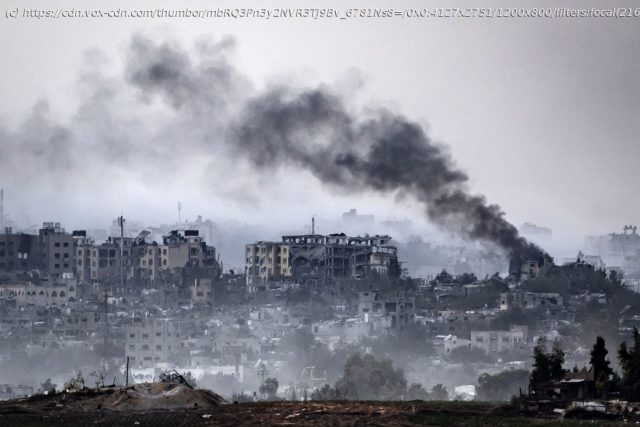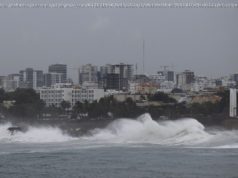The « new phase » of Israel’s war on Hamas, explained.
Israel has begun a prolonged ground operation in northern Gaza, accompanied by aerial bombardments throughout the territory and a communications blackout that lasted almost two days.
Since Hamas, the Palestinian militant group that controls Gaza, conducted a brutal terror attack on Israel three weeks ago that killed more than 1,400 people, Israel has been expected to launch a ground invasion meant to eliminate the group. That ground incursion is now underway — though for now it looks less like a full-on invasion and more like a phased assault.
While it may take some time for the assault’s full scope to become clear, this conflict has already dramatically exacerbated a humanitarian crisis in Gaza. Palestinians in Gaza, who for years have been subjected by Israel to living conditions likened to an “open air prison,” and to political repression from Hamas, are weathering Israel’s devastating bombardment campaign. That bombardment, human rights groups say, has likely included war crimes.
Israel has thus far declined to call the new operation an invasion (though, to be sure, it has both political and tactical reasons to obfuscate). Instead, leaders have described this as a “new phase.” Israeli Prime Minister Benjamin Netanyahu said in an address Saturday that the war had entered a “second phase,” and that the Israel Defense Forces (IDF) would “destroy the enemy above ground and below ground,” referring to Hamas. He warned the country to prepare for a “long and difficult” war.
The IDF described the operation on the social network X, saying that combat forces including infantry had been involved in a ground operation in northern Gaza since Friday night local time. “This is a war with multiple stages,” IDF Lt. Gen. Herzi Halevi said in a video address posted to X, the site formerly known as Twitter. “Today we move to the next one.”
Hamas confirmed that members of its armed wing were fighting IDF forces in the northern city of Beit Hanoun and in Al-Bureij in central Gaza, according to Reuters, and intended to fight the Israeli forces. “Al-Qassam Brigades and all Palestinian resistance forces are fully prepared to confront the aggression with full force and thwart the incursions,” Hamas’ armed wing said.
The escalation follows Israel’s highly criticized effort to evacuate civilians from northern Gaza and a weeks-long bombing campaign; then earlier this week, a series of night time raids indicated that a ground assault was growing closer. The ground assault appears to be a phased assault, in which the IDF will push increasing numbers of soldiers into Gaza over time to accomplish different military objectives.
At the same time, the humanitarian crisis in Gaza is further deteriorating; Israeli air strikes have killed more than 7,000 Palestinians so far, according to the Gaza Health Ministry. And supplies like fuel and clean water are running perilously low because so few aid trucks — 94 since the beginning of the war, compared with hundreds each day prior to the current conflict — have been able to enter the territory Israel has blockaded for 16 years.
This war will have lasting impacts on the relationship between Israel and the Gaza Strip, a 140-square-mile territory of more than 2 million people that Israel has occupied in an outright or de-facto capacity since claiming the territory after a 1967 war with Egypt and Syria.Why details about the operation are so hard to come by
Israeli military and political leaders have been circumspect about the details of the new operation, and that might not change anytime soon. “Israel has [an] interest to keep it vague,” Natan Sachs, director of the Middle East program at the Brookings Institution, told Vox.
After Hamas’s attack, which included widespread targeting of civilians, the mutilation of dead bodies, and the kidnapping of over 200 hostages, Israeli officials repeatedly vowed to “destroy” Hamas. Netanyahu said Israel would turn Gaza into a “deserted island,” for example; Defense Minister Yoav Gallant said they would wipe Hamas “off the face of the earth.” That rhetoric and goals had not just human rights groups alarmed about the devastating consequences for civilians, but even reportedly US officials who worried that Israel was not adequately planning for a long-term stable future.
Saturday, in his first press conference since the October 7 attack, Netanyahu continued to frame the war in existential terms, calling the operation Israel’s “second war for independence.






